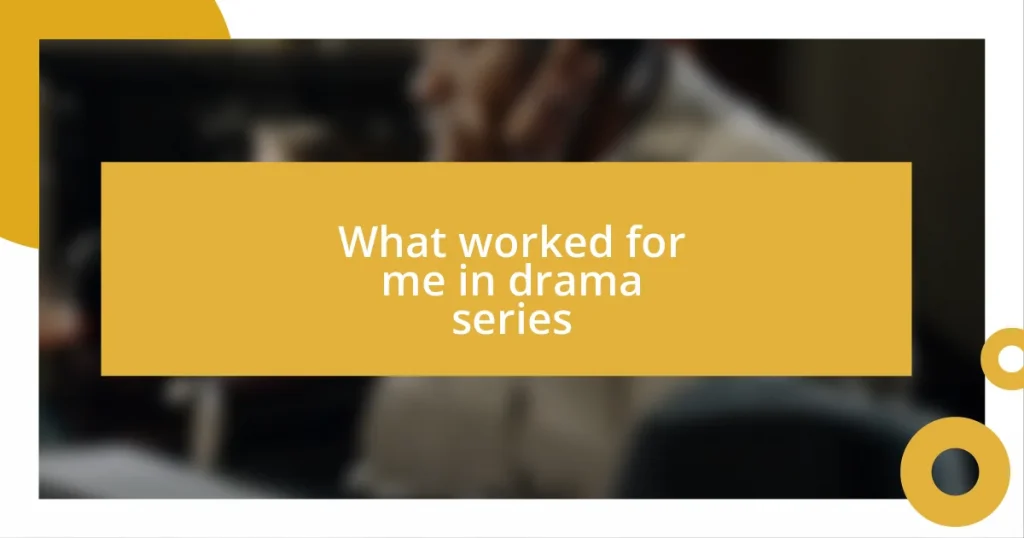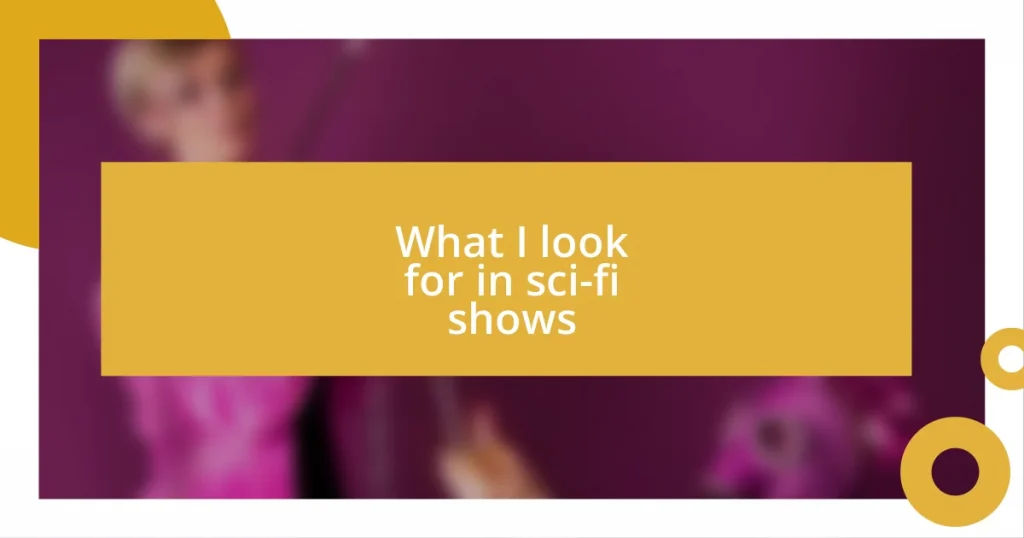Key takeaways:
- Initial confusion and excitement about emerging technologies like blockchain and AI evolved into a deeper understanding of their potential to reshape daily life.
- Adapting to rapid technological changes requires a flexible mindset and a willingness to embrace new tools, leading to enhanced productivity and insights.
- Celebrating small successes and learning from experiences fosters innovation and growth within teams, highlighting the importance of strategic tech adoption.
Understanding emerging technologies
Understanding emerging technologies can feel like trying to catch smoke with your bare hands. I remember the first time I heard the term “blockchain.” My initial reaction was confusion mixed with excitement; it was difficult to grasp the idea of a decentralized ledger that could revolutionize industries. Have you ever experienced that thrill of discovering something that could potentially change the world in surprising ways?
As I delved deeper, I began to appreciate the nuances. Emerging technologies, such as artificial intelligence and quantum computing, aren’t just buzzwords; they represent new paradigms that can reshape our daily lives. I recall a workshop where a speaker demonstrated how AI can analyze vast datasets in seconds, a task that once took teams days to accomplish. It was a moment that shifted my understanding; these technologies aren’t just future concepts—they’re already here, tweaking the fabric of reality as we know it.
What’s truly fascinating is how these technologies provoke a mix of optimism and apprehension. I often find myself pondering: how will society adapt to such rapid changes? While I’m excited about the opportunities, I’m also aware of the ethical implications— jobs being replaced, privacy concerns—balancing progress with responsibility is something we must consider. I believe that engaging in conversations about these technologies can help us navigate this complex landscape.
My journey into technology
I still remember the first time I interacted with a virtual reality headset. I was at a tech expo, and putting it on felt like stepping into a different universe. As I moved through a digital landscape, the sensation was overwhelming—both exhilarating and slightly disorienting. That moment solidified my fascination with technology; it showed me how immersive experiences could alter our perceptions and expand our creative boundaries.
- I’ve taken courses in coding, which felt like unlocking a secret language.
- Attending hackathons inspired me to collaborate with sharp minds and brainstorm innovative solutions.
- Learning about the Internet of Things (IoT) made me realize how interconnected our lives are becoming, sparking my curiosity about smart devices.
Each of these experiences helped to pave my journey into understanding the intricacies of technology. They pushed me to embrace a mindset of lifelong learning, recognizing that in this fast-evolving world, adaptation and innovation go hand in hand.
First impressions of new tools
When I first laid eyes on a new productivity tool designed for team collaboration, I was both intrigued and skeptical. The sleek interface promised to streamline communication, but I couldn’t shake the feeling that it might overcomplicate our existing workflows. I remember my initial hesitation, thinking, “Is this really necessary?” After experimenting with it for a few weeks, though, I found myself pleasantly surprised. It transformed our meetings into more focused discussions, making information sharing effortless and direct.
Trying out a new data visualization tool was an eye-opener. I vividly recall my excitement as I clicked through the features, transforming raw data into stunning visuals in mere minutes. It felt like I had been given a magic wand! The first graph I created was one of those “aha” moments, where I could see insights materialize before my eyes. That experience reignited my passion for numbers, showing me just how impactful the right tool can be in conveying a story.
Comparing my early experiences with tools seems almost like comparing childhood memories. Some left me scratching my head, while others sparked joy and creativity. The variety and pace at which new tools emerge can be exhilarating and exhausting. Have you ever felt overwhelmed by the choices available? I certainly have, but I’ve learned that embracing a trial-and-error approach often leads to uncovering hidden gems that truly make a difference in how I work.
| Tool Type | First Impression |
|---|---|
| Collaboration Tool | Skeptical yet curious; later found it simplified discussions. |
| Data Visualization Tool | Exciting and transformative; it made data storytelling accessible. |
Adapting to rapid changes
Adapting to rapid changes in technology has been a rollercoaster ride for me. There was a time when I struggled to keep up with an emerging trend in artificial intelligence. I remember feeling a mix of fear and excitement as I watched others thrive in a world where machines were quickly evolving. It prompted me to dive into online courses and engage with knowledgeable communities, slowly transforming that initial anxiety into a deep understanding of AI’s potential.
I’ve come to realize that embracing change often means stepping out of my comfort zone. One instance that stands out is when a new software update disrupted my usual workflow. Instead of resisting the change, I decided to see it as an opportunity for growth. That shift in mindset made a world of difference. I played around with the new features, and soon enough, what felt like a setback turned into a chance to enhance my productivity significantly. Have you faced a similar challenge that turned out to be a blessing in disguise?
Navigating rapid technological shifts has required me to be flexible and open-minded. I often find myself reflecting on how adaptability can become a powerful asset. There was once a period when the pace of change felt overwhelming, leading me to question my ability to keep up. Yet, by cultivating a habit of staying curious—like exploring tech blogs and attending webinars—I found that each new advancement offered fresh insights and broadened my horizons. It’s this ongoing journey of learning and adaptation that keeps me engaged and energized in this vibrant tech landscape.
Challenges faced in technology
Embracing new technologies often comes with a fair share of challenges. I remember the first time I used a cloud storage system; I felt a wave of relief that I could access files from anywhere. But soon, I faced the reality of security concerns. There was that moment when I realized I didn’t fully understand the measures in place to protect my data. Have you ever felt that nagging doubt about how secure your information is? It pushed me to learn more about encryption and best practices, transforming my view from anxiety to empowerment.
Then there’s the issue of integration. One particular experience stands out when I tried combining different platforms to improve our team’s workflow. Initially, it seemed like a brilliant idea; however, it quickly turned into a tangled web of confusion. I vividly recall the frustration of repeated versions of a single document floating around, creating chaos instead of clarity. This taught me that technology is only as effective as how well it fits together. Have you wrestled with blending tools in your own work? Navigating through this integration challenge made me appreciate the importance of strategic choices in tech adoption.
Lastly, there’s the challenge of user adoption. I can still feel the resistance from my colleagues when we introduced a new project management tool. It was like trying to convince them to switch from their favorite coffee to tea! Despite my enthusiasm, their reluctance made me reflect on how important it is to address the emotional side of technology transitions. How can we make it easier for others to embrace new tools? I learned that fostering an open dialogue about the benefits and allowing time for adjustment can pave the way for smoother transitions. These experiences have shown me that tackling these challenges head-on is essential for reaping the rewards of emerging technologies.
Learning from technology successes
Learning from technology successes isn’t just about the tools themselves; it’s about the experiences that shape our understanding and growth. I can distinctly remember my first success with implementing a collaborative software in my team. Initially, there was skepticism, but after a few productive projects, I noticed a remarkable shift. I felt the team’s energy transform as they embraced the software, enhancing our communication and creativity. What would have happened if I hadn’t taken that chance?
One notable lesson came from experimenting with social media marketing tools. Initially, my attempts were met with lukewarm results. However, I decided to analyze the data and refine my approach. It dawned on me how important it is to study what works and what doesn’t. Seeing the positive impact of strategic changes ignited a deeper passion for learning. Isn’t it empowering to witness firsthand how a little adjustment can lead to substantial improvement?
Reflecting on these experiences, I’ve come to appreciate the importance of celebrating small wins. Each successful implementation, no matter how small, has taught me something invaluable. I vividly recall the thrill of witnessing a team member light up when they mastered a new feature that made their work easier. Moments like these reinforce my belief that technology, when embraced with an open mind, can lead to collective growth and innovation. Have you celebrated your tech successes, no matter how minor? They often hold the keys to greater insights.
Future outlook on emerging technologies
As I take a moment to think about the future of emerging technologies, I can’t help but feel a sense of excitement. The pace at which innovations are developed seems to accelerate year after year. When I first learned about AI’s potential to transform industries, it felt like watching a movie where the possibilities are endless. This evolution isn’t just about technology; it’s about reshaping how we live and work, isn’t it captivating to think about?
I still remember discussing virtual reality (VR) applications with a colleague over lunch. We were both blown away by how VR could revolutionize training in complex environments. Picture this: medical students practicing surgeries in a risk-free virtual space. It’s a powerful thought, right? As these technologies continue to develop, I believe we’ll see industries adapting faster than we can imagine. The question is, how will these shifts impact our day-to-day interactions?
Looking even further ahead, I envision a world where wearable technology seamlessly integrates into our daily lives. Just the other day, I was chatting with a friend who uses a fitness tracker that not only monitors health but offers personalized suggestions. I felt a wave of awe at the potential for such tools to empower individuals to take control of their well-being. Isn’t that a sign of what’s to come? The future surely holds unique challenges and opportunities, and I find myself curious about what role I’ll play in this evolving tech landscape.












